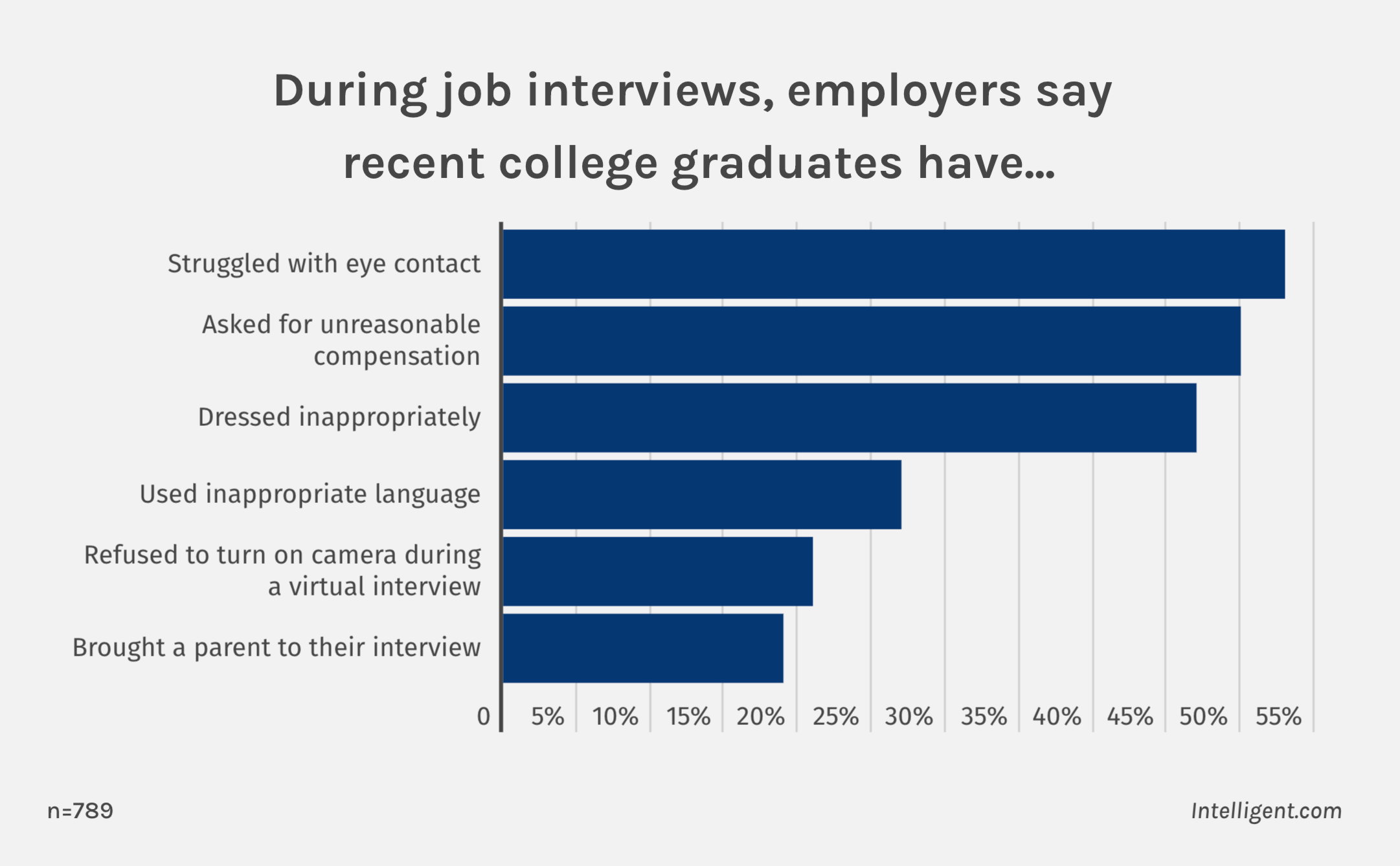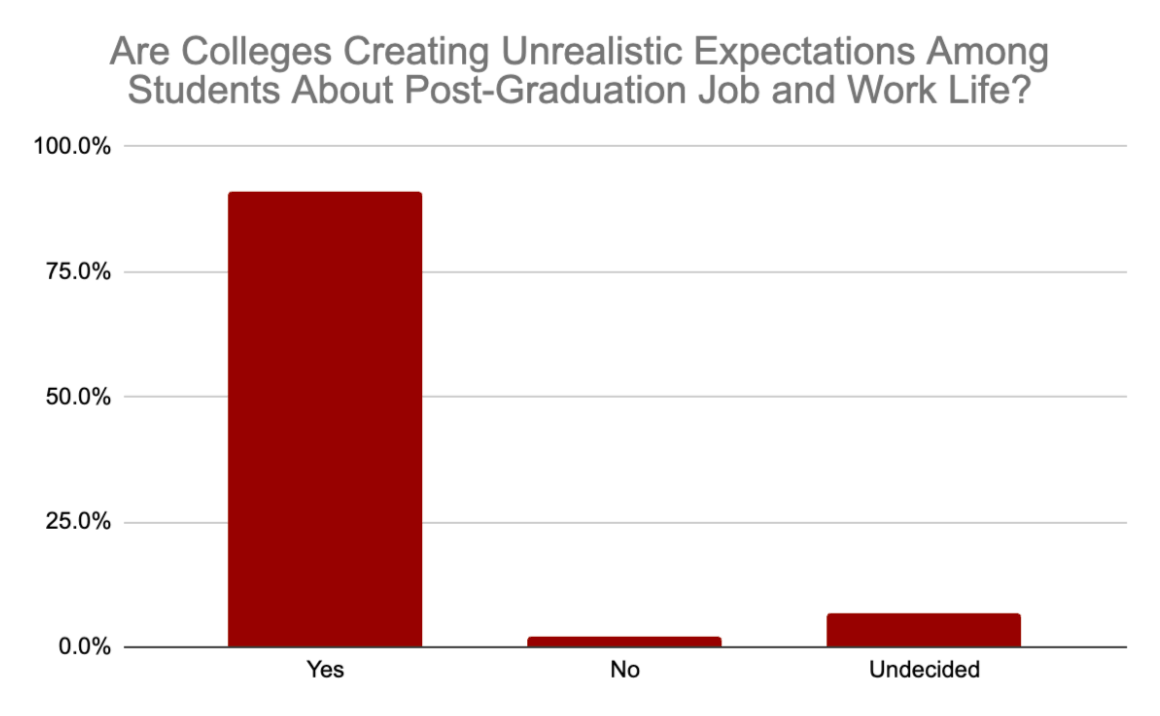Reverse ageism: why do companies avoid Gen Z workers?
Age discrimination is unexpectedly affecting Gen Z in the workforce. Managers prefer seasoned workers according to an Intellgent.com survey, underscoring training gaps, unrealistic expectations, and other issues in the system.

Age discrimination is rampant in the United States. It can be challenging to get a job you are qualified for when you’re 22 years old.
Wait, what?
Okay, so legally, age discrimination isn’t illegal unless you are discriminating against people who are over the practically dead age of 40. (At least from a federal perspective – some US states prohibit age discrimination from 18.)
However, discrimination is happening frequently to the youngest members of the workforce – Gen Z.
A survey conducted by Intelligent.com in December 2023 found that many employers are steering clear of Gen Z employees.
If you ask me, I think the goal is to show how awful Gen Z is, and instead, it demonstrates three things to me:
- Every generation thinks the next generation is lazy and awful.
- If all laziness and awfulness of Gen Z is true, boy, Gen X, and Baby Boomers are bad parents.
- There is something wrong with our universities.
Let’s break this down, first by looking at the survey results:
Contents
The survey results
The survey found that many managers prefer working with older, more experienced employees and are willing to pay a premium to ensure that.
Here are some key points from the Intelligent.com study:
- 38% of employers avoid hiring recent college graduates in favor of older employees
- 1 in 5 employers have had a recent college graduate bring a parent to a job interview
- 58% say recent college graduates are unprepared for the workforce
- Nearly half of employers have had to fire a recent college graduate
- 53% say recent college grads struggle with eye contact
- 50% say recent college grads ask for unreasonable compensation
- 47% say candidates show up dressed inappropriately
- 21% say candidates refused to turn on cameras for video interviews
- 63% say new grads can’t handle their workload
Watch me tsk tsk about these horrible Gen Zs who don’t even know about dress codes and leaving Mommy at home! (Not to be sexist, but I’m willing to bet dollars to donuts that it wasn’t Dad who showed up at the job interview.)
But first, I’m going to shame the adults in the room.
1. Every generation thinks the next generation is lazy and awful.
This really shouldn’t be a shock to anyone. Paul Fairie, a researcher at the University of Calgary, posted a brilliant thread on
Twitter detailing how each generation complains about the younger generation – going back to 1894. He could even have gone further back to sometime around 300-600 BC, when Greeks complained that children “began to be the tyrants, not the slaves, of their households.”
A Brief History of Nobody Wants to Work Anymore
🧵
— Paul Fairie (@paulisci) July 19, 2022
The reality is that younger people will never be as good at being like older people precisely because they are younger. They have to be trained. They have to learn by experience. There’s no royal road to maturity. Complaining about young people just makes you sound, well, old.
2. If all laziness and awfulness of Gen Z is true, boy, Gen X, and Baby Boomers are bad parents.
Who are the hiring managers making these decisions? Why, some millennials, of course, whose oldest children are the younger Gen Zs.
But primarily, hiring managers fall into the forgotten Gen X with some Baby Boomers still hanging on down the home stretch to retirement.
And who raised these good-for-nothing Gen Zs who don’t have the sense to put some pants on, turn on their cameras, and cover their tattoos for a job interview? Well, that would be Gen X and the younger boomers.
Yes, it’s ridiculous that we (as a Gen Xer, I feel like I can say “we” here) complain that parents show up for interviews. Who is showing up? It’s not Gen Z that is going to their toddler’s job interviews. It’s the Gen X and Boomer parents. Whose fault is that? Again, not Gen Z.
Why doesn’t Gen Z know how to dress appropriately for a job interview? Perhaps it was because Mommy and Daddy ran to the school to complain about dress codes. When you’re fighting for the right for your son to have his waistband fall below his rear end and your daughter to have her midriff showing, don’t be surprised when your little darlings don’t know how to dress for a job interview.
You’ve spent 22 years saying, ”You be you, honey. Clothes don’t matter.” It turns out children do listen – sometimes.
3. There is something wrong with our universities.
Where does Gen Z get wildly inappropriate ideas about reasonable salaries? Well, from school, of course. A joint survey from PublicSquare and RedBalloon of business owners found that 91% believe universities “are fostering unrealistic expectations among students regarding post-graduation and professional life.”
Yikes.
Students graduate expecting the salaries of people who have worked for years and the responsibilities to match. Sixty-three percent said salary expectations were off, and 50%had false beliefs about work difficulty.
Parents send their children to university so that their children can get good jobs. That’s clear, but it’s not necessarily what universities are doing. Instead, some universities are fostering an environment where every need is handled.
For instance, at Stanford University, there are more administrators and faculty members than actual students. Businesses run much more lean than that. You’re expected to be responsible for yourself and carry out tedious tasks you don’t want to do.
Overall, work is called work because it’s hard. That’s why people pay you. It’s not all fun and games. Workable CEO Nikos Moraitakis made that clear in an interview about the work experience at his company in 2018:
“You will sit in an office, work on what are undoubtedly interesting problems with a pretty significant amount of data, designing a beautiful product on the way. … [Work] involves doing a lot of things that you would rather not be doing, but down the line, there may be something in it that may improve the way a lot of people work.”
[Work] involves doing a lot of things that you would rather not be doing, but down the line, there may be something in it that may improve the way a lot of people work.
And perhaps, look in the mirror before complaining about Gen Z. Young people being young people is expected. But the more significant problems? Well, older generations caused those. Stop accompanying your child on job interviews. Problem solved.
And one more thing; Of course, companies are willing to pay experienced workers more than inexperienced workers. This isn’t discrimination. This is smart. Imagine how people would complain if you paid Emily and Jacob at 22 with one internship, the same salary as Jennifer and Michael with 30 years of experience.
Frequently asked questions
- How does age discrimination uniquely impact Gen Z in the workplace?
- Age discrimination against Gen Z manifests differently compared to traditional forms. While older employees often face biases about their ability to adapt to new technologies or trends, Gen Z employees are stereotyped as being unprepared, lacking professional etiquette, and having unrealistic job expectations. Employers are hesitant to hire them, preferring more experienced candidates. This bias stems from perceptions of immaturity, a lack of professional experience, and assumptions about their work ethic.
- What are the key findings of the Intelligent.com survey on Gen Z employment?
- The Intelligent.com survey uncovered several perceptions among employers about Gen Z candidates: - 38% of employers avoid hiring recent college graduates, favoring older employees. - 1 in 5 employers reported a recent college graduate bringing a parent to a job interview. - 58% believe recent college graduates are unprepared for the workforce. - Nearly half have had to fire a recent college graduate. - Issues with professional communication, attire, and compensation expectations were frequently cited.
- Why do employers hesitate to hire recent college graduates?
- Employers are reluctant to hire recent graduates due to perceptions of inadequate preparation for professional settings. This includes poor communication skills (like maintaining eye contact), inappropriate dress sense for interviews, unreasonable salary expectations, and a lack of understanding of professional norms. Additionally, there are concerns about their ability to handle workloads and adapt to the corporate environment.
- What role do universities play in shaping Gen Z's job expectations?
- Universities are often criticized for not aligning educational outcomes with real-world professional expectations. This disconnect leads to Gen Z developing unrealistic salary expectations and a lack of understanding of workplace demands. The survey suggests that universities might be fostering an environment where every need is catered to, which doesn’t reflect the realities of most professional settings. This has led to a gap in practical skills and workplace readiness among graduates.
- How can workplaces address reverse age discrimination effectively?
- To combat reverse age discrimination, workplaces can implement more inclusive hiring practices that value potential and adaptability alongside experience. This includes providing mentorship programs, internships, and training opportunities to bridge the gap between academic knowledge and practical skills. Companies should also reevaluate their recruitment processes to eliminate biases and foster a culture that values diversity in age and experience. Educating hiring managers and HR professionals about the nuances of age discrimination can also lead to more balanced and fair hiring decisions.






